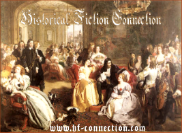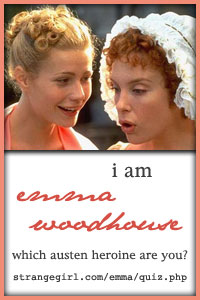1 rose
 Have you ever read a book and then wondered how in the world you ever finished it? As another publication about Eleanor of Aquitaine this year, I was quite interested to see how this author handled the lady's amazing life. I was left wishing I had saved my money.
Have you ever read a book and then wondered how in the world you ever finished it? As another publication about Eleanor of Aquitaine this year, I was quite interested to see how this author handled the lady's amazing life. I was left wishing I had saved my money.This novel covers Eleanor's life from slightly before her marriage to Louis of France until her son Richard comes to the throne. We see her married to Louis, divorce him, marry Henry, have several children, and end up imprisoned. That really is about the extent of the historical accuracy in this novel. Everything else left me wondering if this was possibly about some other Eleanor as absolutely nothing between its covers resembles what I've read previously about her. Please be warned, this review will probably contain some spoilers.
I felt like this novel was bad almost from page one to the end. The character portrayals were horrible and the story itself was almost completely unbelievable (at least to those who have read much on Eleanor and her life). The overall writing was not that bad (not good but not completely horrible) but the ridiculous plot overshadowed it. I understand that historical fiction authors are going to twist some historical facts to fit the story they want to tell. I feel in this case that Kaufman twisted things so much that Eleanor's life is hardly recognizable. To start out, the author has Eleanor and her handmaid literally dumped at a very ruined castle at Old Sarum, apparently sent there by Henry, hoping she'd die of exposure. Thinking she's going to die soon, she begins writing her story (while hallucinating about her dead grandfather). What? I know Eleanor and Henry were at odds for 16 years but I've never heard any accounts of Henry purposefully putting her in harm's way. Next, it appears in this novel that Eleanor was coerced into her first marriage and never wanted it (though I believe I've read where she either instigated the match or at least knew that it was a wise move politically). I can handle that though as it makes Eleanor's situation a bit more sympathetic. The author portrays Eleanor's first husband, Louis, almost as a maniac who is so obsessed with the thought of Eleanor possibly having an affair that he pretty much keeps her under lock and key. I know there were issues in their marriage stemming from his apparent lack of interest in performing the marital duty but really? His constant hysterics and paranoia was just OTT in my opinion. Next, Eleanor is tricked and forced into marriage with Henry! And when I mean forced, I do mean forced. Henry is portrayed as absolutely brutal and cruel, truly living up to his ancestors' claim of having descended from the devil. I am sure Henry could be ruthless when it came to his enemies, etc, but I've never heard of him being particularly cruel just for the hell of it. At this point I wanted to throw the book against the wall but I persevered, thinking that maybe the author was merely painting Eleanor's marriages in such a horrible light to show how much she really loved her "true love" and that things would improve and start to resemble a more familiar story. Not a chance. Throughout the book Eleanor manages to have a long standing affair and pass off two, if not three of her children, as Henry's. We do see (vaguely) their sons' rebellion against Henry, we hear of the Young King's death, Eleanor runs into Rosamund, there's the hint of Henry's affair with Princess Alais (and a miscarriage), and Henry does finally die after being betrayed by his son John. Between those events (or rumors) the author has thrown together all kinds of creative ideas to make the story move along. I have to wonder again why authors feel the need to ruin stories of Eleanor; her life was more fantastic and drama filled than any author could imagine (or so I thought). There was no author's note at the end to tell us where she got her information or how she came up with her ideas. The reader is just left with this mess of a story. There weren't even any really good descriptions or details to mention; nothing that really stood out in my mind as helping the reader envision a time so distant from our own.
I know there are plenty of rumors out there about Eleanor and there is no way to prove or disprove any of them (though most seem merely politically motivated to discredit her). Honestly, I don't mind if some of them show up in books about her because I know these rumors existed. However a catastrophe like this was, with some ideas so absolutely OTT that they are completely unbelievable, is just unnecessary. I did try to find something good to say about the novel but I pretty much searched in vain (though, like I said, the writing itself was not horrible or too juvenile). After reading this, Alison Weir's novel on Eleanor doesn't seem nearly as awful; at least she stuck to known rumors. I would warn most readers to avoid this one, unless you really want to read a book that seems full of nothing but imagined ideas about Eleanor. I gave it one star because at least the author was creative.























Ouch! I don't remember hearing anything good about this one so it sounds like it's just as well that I never bought it!
ReplyDeleteOh, thanks for taking one for the team.
ReplyDeleteI got suckered on this one too I bought it but was scarred I was just about to give it away. Now I do not feel so bad. Good honest review so like a train wreck you just can not look away.
ReplyDelete